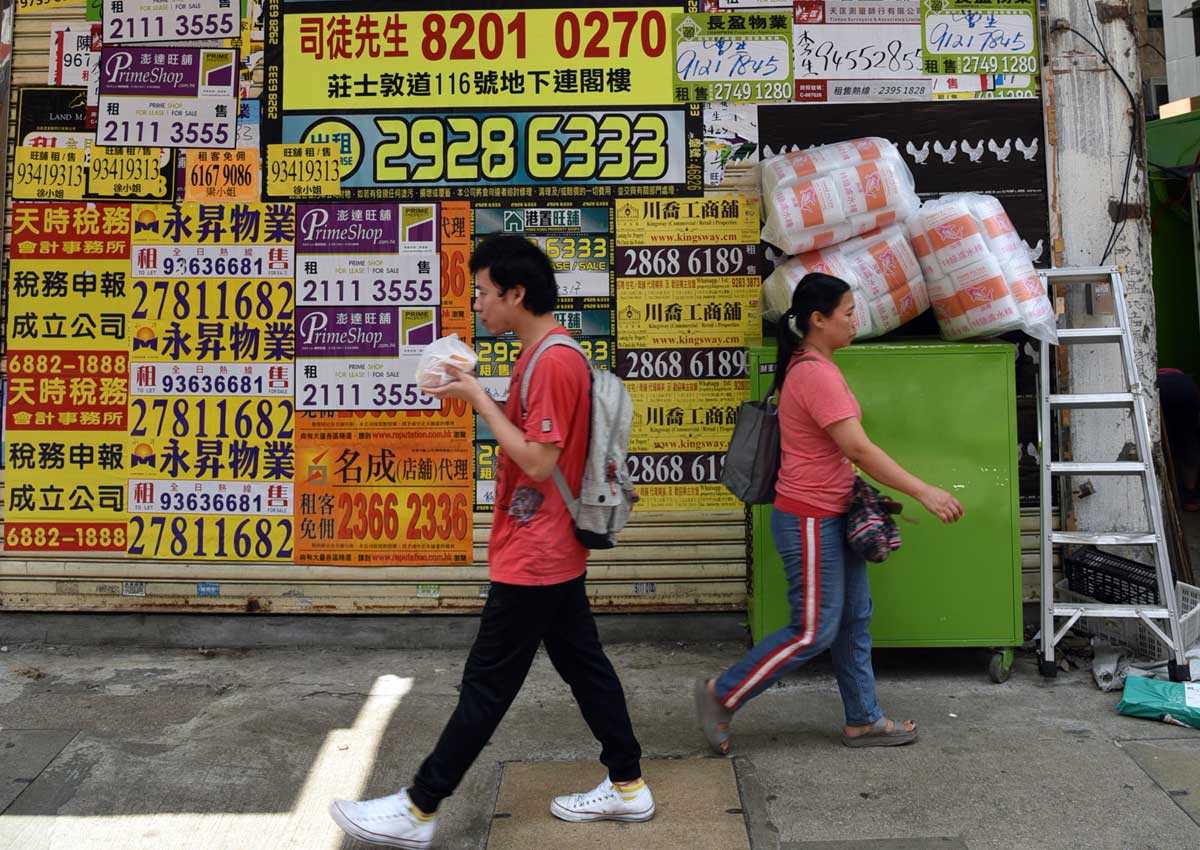At a store of Sa Sa, one of the largest cosmetics chains in Hong Kong, in the popular shopping district Causeway Bay, five staff members stand idly with nary a customer in sight.
It has been “quiet like this for the past six months”, one of them told The Straits Times yesterday, adding that the store normally would have been crowded with shoppers from the Chinese mainland.
Things are so bad that Sa Sa last month said it expected its profits to drop by more than half.
Not only are the retail and hospitality sectors facing a slump – hotels are slashing room rates – but so is the property sector, with developers giving discounts to draw buyers.
These are signs that Hong Kong’s economy is in danger of falling into recession; it shrank by 0.4 per cent in the first quarter, and key sectors remain weak.
An economy is deemed to be in recession after two successive quarters of negative growth.
If recession hits, it would be due to the city being closely connected to China financially and economically, analysts say.
In particular, tourism, a key pillar of the city’s economy, is highly dependent on China, the source of 70 per cent of its inbound tourists.
With China’s ongoing anti-graft campaign curbing spending by the Chinese, the falling appeal of Hong Kong to mainland visitors and a stronger Hong Kong dollar, the tourism sector has been badly hit.
Statistics from the Hong Kong Tourism Board show 1.39 million visitors from the mainland in the first quarter, a drop of 12.6 per cent from the same period last year.
The tourism slump is hurting retail sales, which dived 11.3 per cent in the first quarter.
“Before, my store was flooded with Chinese tourists. It’s like they disappeared overnight. I never imagined it could be this bad,” said Mr Jimmy Chan, 57, owner of a medical store in Causeway Bay, adding that his business has fallen by over 50 per cent since last year.
Poor retail sales are a big drag on the economy, with OCBC Bank’s economist Tommy Xie attributing the bleak first-quarter GDP data to “weak retail and trade sectors, cautious business spending and sluggish local consumer demand”.
Finance, too, is hurting. Banks are scaling back lending to Chinese firms due to China’s slow growth.
With the banking and insurance sector making up 17.1 per cent of real GDP and accounting for 6.3 per cent of employment last year, any blip in the sector will hurt the economy as a whole.
The banking sector could see more layoffs towards the end of the year and in 2017, said DBS senior economist Chris Leung.
Rising unemployment – at a two- year high of 3.4 per cent – leads to inability to pay loans and is likely to dampen consumer sentiment, affecting private consumption that is a key growth engine, said Mr Xie.
While retailers like Mr Chan are hoping for a rebound in consumption by year-end, economists are not so optimistic.
Citi’s Hong Kong economist Adrienne Lui does not expect a quick turnaround, citing lower consumer spending.
Property analysts expect the market to fall further as buyers and sellers adopt a wait-and-see attitude.
Still, some economists are pinning their hopes on a recovery in Hong Kong’s trading activities to offset the tourism and retail slump.
“Both exports and imports in Hong Kong fell at a slower pace in April. Should demand in Europe and some Asian countries continue to pick up, we could pin hopes on a recovery in Hong Kong’s trading activities,” said Mr Xie.
joycel@sph.com.sg

This article was first published on June 9, 2016.
Get a copy of The Straits Times or go to straitstimes.com for more stories.





